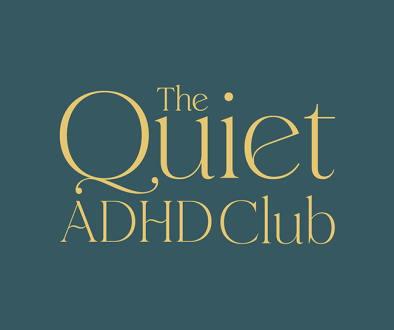“I’ll give you all of me”: the all-consuming feeling of limerence

John Legend’s soulful ballad, “All of Me,” captures the intoxicating euphoria of early love with its lyrics: “Love your curves and all your edges / All your perfect imperfections.” But for neurodivergent (ND) individuals, this all-consuming experience can be both a blessing and a challenge. Listening to the song, I am reminded of so many stories my clients tell me about the very beginnings of their relationships.
The onset of limerence
As a couples therapist, I often witness the profound impact of love on my clients. The initial stages, marked by intense “limerence” – that period of infatuation and obsession – are universally experienced. However, the neurological cocktail that fuels this phase – dopamine, oxytocin, norepinephrine, cortisol, serotonin, endorphins, and vasopressin – can be particularly potent for ND individuals. Their heightened sensitivity to sensory input and emotional experiences can amplify the highs and lows of falling in love.
This heightened intensity can lead to deep, passionate connections, but it also presents unique challenges. The demands of daily life, particularly the arrival of children, can disrupt the delicate balance of this early connection.
If you can relate to this feeling and want to learn more about limerence, I have a free resource for you. Download my guide to limerence in relationships for those with ADHD.
What comes after limerence?
The intensity of the feeling of limerence is exciting, but not sustainable. The comedown after limerence fades can be very disconcerting, especially for neurodivergent people. However, particularly in the case of ND, limerence can last quite a long time – until a major life shift happens.
The biggest challenge comes when children arrive. The spell seems to break with the relentlessness of life, children, and career – a way that more neurotypical couples seek to be able to manage slightly easier.
The constant demands of parenting can leave ND individuals feeling overwhelmed and depleted. The need for downtime to “recalibrate” – often perceived as avoidance by their neurotypical (NT) partners – is crucial for their well-being. This can lead to feelings of loneliness and disconnection for the NT partner, who may crave more consistent engagement and intimacy.
The effects of a lifestyle change
One of the most common issues I encounter is the disparity in energy levels. One of the most reported issues from the more NT partner is that they can often feel very lonely in the relationship. This is usually when there are other responsibilities that exhaust the more ND partner, thus leaving them needing more time to recover and recuperate.
This dynamic can create a cyclical pattern of disengagement and resentment. The NT partner may feel neglected and unsupported, while the ND partner struggles to meet the demands of both their relationship and their own neurological needs.
Resentment doesn’t happen overnight. With a change in lifestyle and a shift in the couple dynamic, the resentment builds up brick by brick until it feels overwhelming. If you don’t address resentment in your couple, it can lead to intense feelings of unfairness.
Open communication about neurodiverse relationships
With increased awareness and understanding of neurodiversity, couples can navigate these challenges more effectively. Early diagnosis and open communication about individual needs are crucial.
These days, with early diagnosis informing couples and the levels of information available about the management of these conditions, things are very different. Couples are far more prepared for the changes that children may bring to their relationships.
By acknowledging and respecting the unique needs of each partner, couples can cultivate a deeper understanding and appreciation for their differences.
Ultimately, the journey of love for ND couples, like any other, requires ongoing communication, compromise, and a commitment to mutual support. While the intensity of early love may ebb and flow, the foundation of a strong and fulfilling partnership can be built upon a shared understanding of each other’s strengths and vulnerabilities.
From all-consumed to whole
The line ‘I’ll give you all of me’ resonates deeply. While the initial ‘all of me’ might be the passionate, all-consuming limerence, it evolves into a more mature and sustainable ‘all of me.’ This evolves into a commitment to vulnerability, honesty, and mutual support. It’s about recognising and appreciating each other’s unique needs and finding ways to nurture both individual and shared well-being.
I cannot emphasise enough the equal need of individual and shared wellbeing. This is called the “dependency paradox” and it is key to managing self-regulation and keeping the spark in your relationship alive. True intimacy thrives when individuals within a couple cultivate both deep connection and healthy independence. This doesn’t imply complete detachment, but rather a secure sense of self and a trust that your partner will be there for you when needed.
This foundation of security allows both partners the freedom to explore their individual interests, pursue personal growth, and cultivate a sense of self beyond the confines of the relationship. This individual flourishing, in turn, becomes incredibly attractive to their partner, adding an element of intrigue and mystery to the dynamic.
By nurturing yourselves, you will have more left to give each other. And this ‘all of me’ encompasses not just the romantic, but also the mundane, the challenging, and the evolving selves within the relationship. It’s about finding joy in the everyday, celebrating imperfections, and choosing to love and be loved authentically, even when the initial spark has transformed into the steady warmth of companionship.



